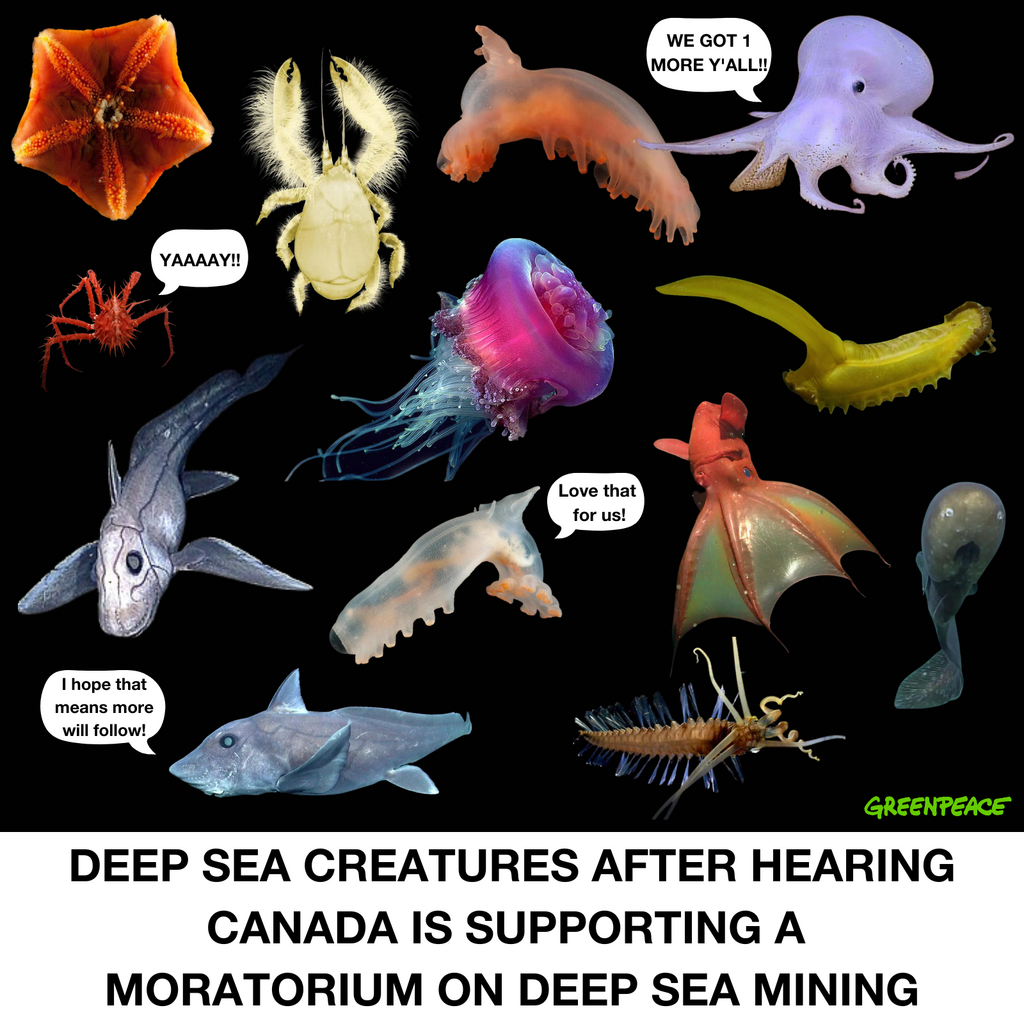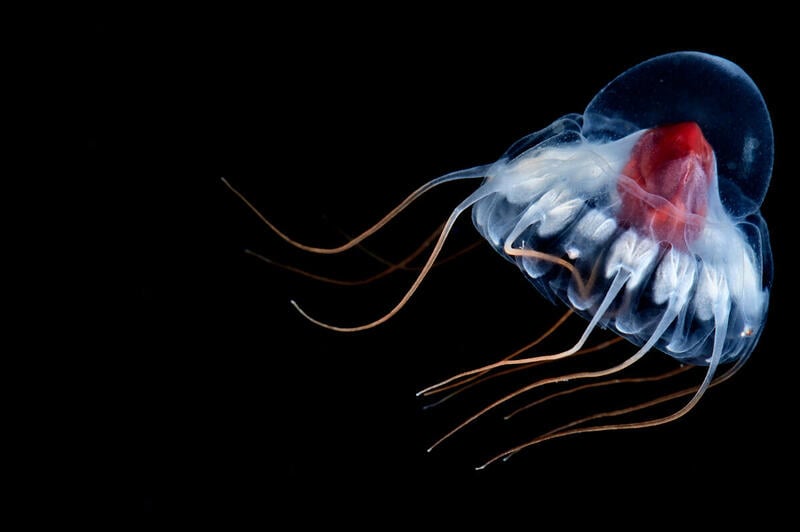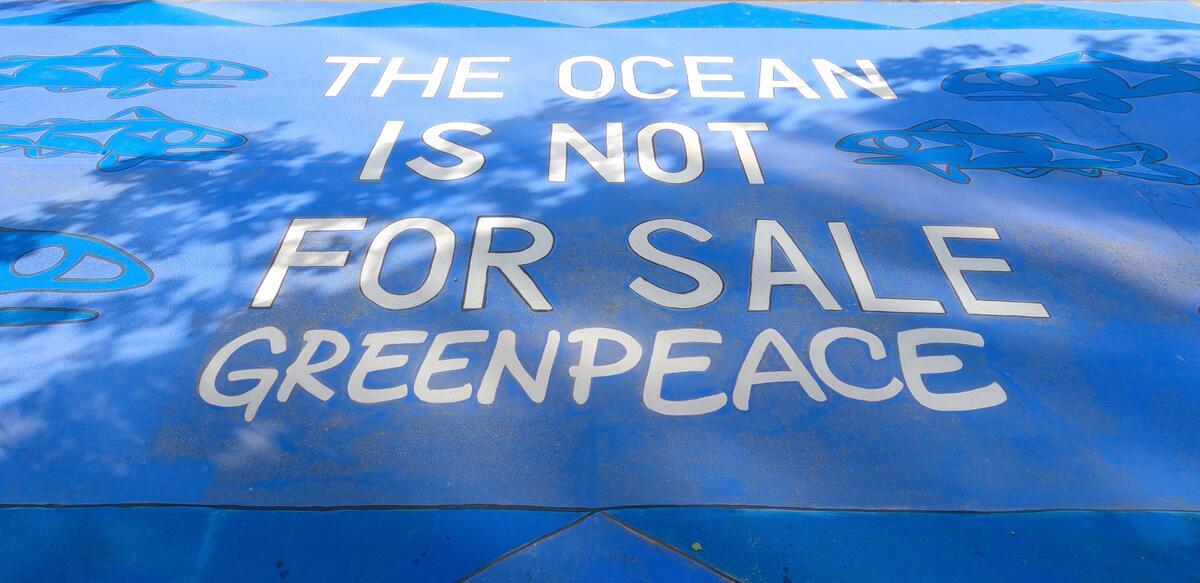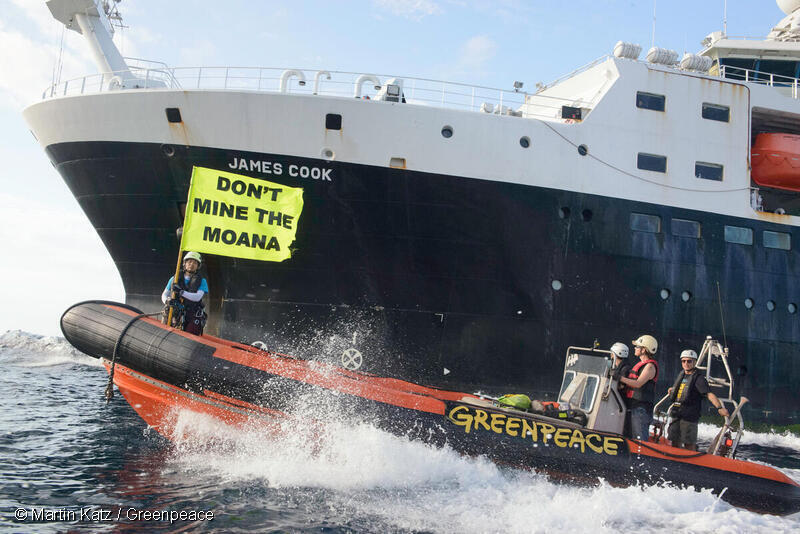Federal Minister Joly, Minister Wilkinson and Minister Murray made our Monday last week with an announcement that Canada supports a moratorium on deep sea mining in international waters. This move was a welcomed step that helps build momentum towards the ultimate goal of Greenpeace’s global campaign — to stop deep sea mining before it starts.
But to do that, we first need global governments to agree to a moratorium at the International Seabed Authority — the UN body responsible for regulating the seabed in the oceans that extend beyond the jurisdiction of any country.
Industry is determined to get its hands on the precious metals of the deep sea, trying to push global governments to fast track the completion of mining regulations. And worse yet, a Canada-based mining corporation, The Metals Company, triggered the “2 year rule” with help from Nauru, which could mean companies could apply for a mining license as soon as this year. We obviously can’t let that happen. We need global governments to say no thanks to the approval of any mining application. And Canada’s statement said just that!
The statement also noted some important points including:
- collective responsibility to safeguarding the health and integrity of the oceans
- a precautionary approach that aligns with tackling climate change, pollution and protecting biodiversity and habitats
- an adherence to science-based policy and decision-making
- ensuring the prevention of damage from seabed mining activities to the marine environment
- prioritizing the protection, conservation and restoration of the global ocean, and its sustainable and equitable use
Canada has made strong global commitments to protect and restore marine biodiversity at COP15 and through its support of the Global Ocean Treaty. The deep sea hosts a diversity of life that is unique, fragile and mostly unknown to science. So to stay true to its pledges, Canada must hold the line and use its position at the ISA to urge more governments to call for a moratorium and prevent yet another threat to ocean ecosystems.
Will Canada support mining after regulations are created?
We certainly hope not. But more than hope, we will continue to remind Canada that if leadership is serious about its commitments, then it will not be possible for it to support mining given what scientists are discovering about the ecosystems that are targeted for mining.

Deep sea mining could risk Pacific island communities’ livelihoods and jeopardize food security. Scientists have warned that “communities that rely on fish stocks for subsistence could be particularly vulnerable to the impacts of seabed mining.” The mineral deposits that companies seek to mine have taken millions of years to form and provide an important habitat for marine life. Deep sea ecosystems are fragile, and the unique organisms they house are very slow-growing and therefore much less likely to recover from disturbance. In May, a review of environmental surveys found that more than 5,000 previously undiscovered species make their home in the Clarion-Clipperton Zone — the main potential mining area.
So what does this all mean for the oceans?
Nothing yet. But governments supporting a moratorium can buy ocean life some time while we mobilize and continue to grow the number of voices calling to stop this destructive industry from moving ahead. It also means that scientists have more time to be diligently working to bring the wonders of the deep to the surface to show world governments what’s at stake and what irreparable harm could be done, if mining were to tear up the deep.
The rising tide of opposition
Canada’s announcement comes following loud and creative calls to the federal government to use its position in the ISA and as a key global ocean country to prioritize protection instead of extraction by organizations including Oceans North, Mining Watch Canada, Nature Canada, Northern Confluence, and Greenpeace Canada. But it isn’t just the NGO community that is warning of rough seas ahead. Scientists and policy experts, Indigenous leaders representing 56 groups from 34 countries, industry investors, major car and technology companies, UK banks, seafood industry groups, the United Nations Environment Programme Finance Initiative, and the UN High Commissioner for Human Rights have all expressed some form of opposition to deep sea mining. Add to this the thousands of people in Canada and around the world that have added their voice to Greenpeace’s campaign to Stop Deep Sea Mining and together, we will continue to push to keep this industry away from the seafloor.
Haven’t yet signed our petition? Help us urge Canada to hold the line and urge other countries to support a moratorium.

We need Canada to stop deep sea mining before it starts. Join the campaign now.
Take action


